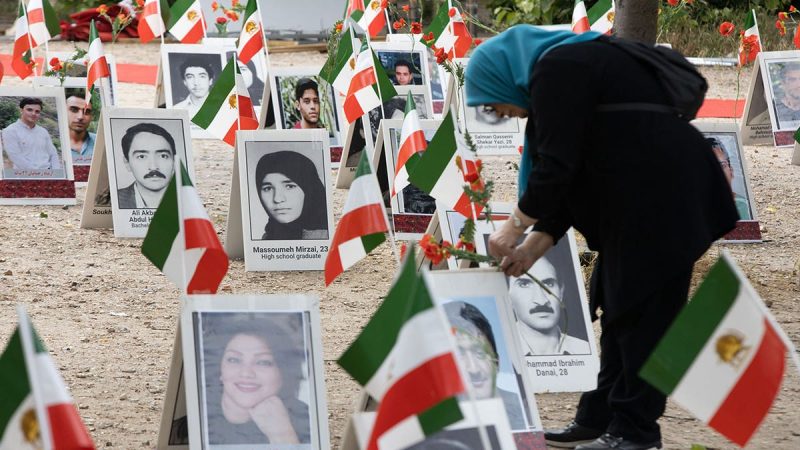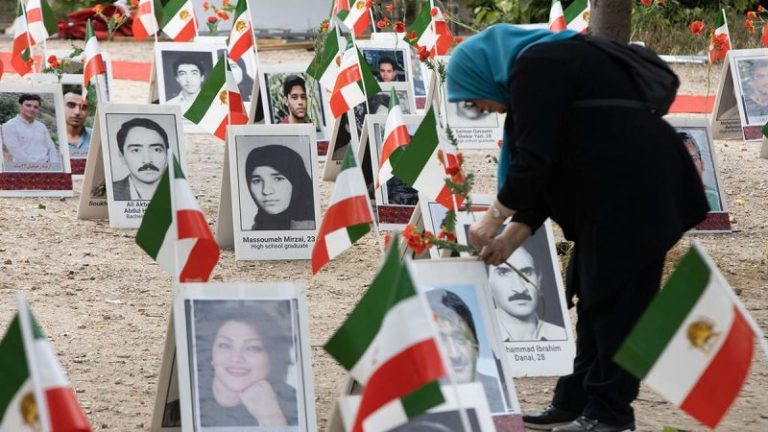
Iran reportedly executed six prisoners Saturday who the regime claimed carried out deadly attacks in the country’s oil-rich southwest on behalf of Israel, marking the latest surge in executions that rights groups say have reached levels unseen in decades.
The six executions were reported by The Associated Press, as well as Iranian news agency Mizan.
A seventh prisoner, accused of killing a Sunni cleric in 2009, along with other crimes, was executed in Kurdistan province.
Saturday’s executions follow the 12-day Iran-Israel war in June, which ended with Tehran vowing it would target its enemies at home and abroad.
According to Amnesty International, Iranian authorities have executed more than 1,000 people so far in 2025, the highest annual figure recorded by the group in at least 15 years.
Iran said the six men linked to Israel killed police officers and security forces, as well as orchestrated bombings targeting sites around Khorramshahr in Iran’s restive Khuzestan province. Iranian state television aired footage of one of the men talking about the attacks, saying it was the first time the details were being made public.
A Kurdish group called the Hengaw Organization for Human Rights said the six were actually Arab political prisoners who had been arrested during the 2019 protests. Hengaw said Iran accused them of having links to the Arab Struggle Movement for the Liberation of Ahvaz, a separatist group blamed for pipeline bombings and other attacks in the region.
The group insisted the men were tortured and forced into giving televised confessions under duress.
The seventh prisoner, Saman Mohammadi Khiyareh, a Kurd, was convicted over the 2009 assassination of Mamousta Sheikh al-Islam, a pro-government Sunni cleric in the Kurdish city of Sanandaj.
Activists have questioned Khiyareh’s case, noting he was only 15 or 16 at the time of the assassination, was arrested at 19 and was held for more than a decade before his execution. His conviction, they said, relied on confessions extracted under torture — a practice activists accuse Iranian courts of using regularly.
The number of state executions has drastically escalated since President Massoud Pezeshkian took office in July 2024. At least 975 people were executed in 2024, according to figures from the United Nations. Pezeshkian answers to Supreme Leader Ayatollah Ali Khamenei, who holds ultimate authority in the country.
Iran has been putting prisoners to death at a pace unseen since 1988, when it executed thousands at the end of the Iran-Iraq war.
Independent U.N. human rights experts have sounded the alarm about the sheer number of executions, calling it ‘a dramatic escalation that violates international human rights law,’ according to a recent press release from the Office of the High Commissioner for Human Rights.
‘With an average of more than nine hangings per day in recent weeks, Iran appears to be conducting executions at an industrial scale that defies all accepted standards of human rights protection,’ the body said.
The Associated Press and Reuters contributed to this report



